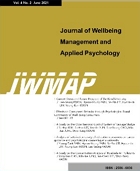- 권한신청
- E-ISSN2586-6036
- KCI
Impacts of Unsystematic Solid Waste Dumping on Soil Properties and Climate Change
Farida BEGUM (Dept. Environmental Science Karakoram International University)
Woo-Taeg KWON (Dept. of Environmental Health & Safety, Eulji University)
Seung-Jun WOO (Dept. of Environmental Health & Safety, Eulji University)
Min-Jae JUNG (Dept. of Environmental Health & Safety, Eulji University)
Abstract
Purpose: Open-air dumping is a significant problem in Gilgit City, with limited research analyzing waste generation and its physicochemical impact on the soil. This study aimed to evaluate the effects of open dumping on soil properties and compare them with a controlled site. Research Design, data, and Methodology: Using ANOVA, the study found significant differences in electrical conductivity (EC), soil organic matter (SOM), soil organic carbon (SOC), sand, silt, and clay between the two sites, except for pH. Pearson correlation revealed that pH negatively correlated with EC, sand, and silt, but positively with SOM, SOC, and clay. The control site's mean EC was 6.06 mS/m, whereas the dumping site recorded 8.5 mS/m. EC is inversely related to SOM, SOC, silt, and clay, but directly to sand. SOC and SOM values varied significantly, with notable differences in soil texture components like clay and silt. Results: The research highlights the detrimental effects of unsystematic waste dumping on soil health and its contribution to greenhouse gas emissions, particularly methane, which exacerbates climate change. Conclusion: The study concluded that waste deposition and decomposition significantly impact EC, SOM, SOC, and soil texture, though pH remains unchanged. The unsystematic dumping of solid waste contributes to climate change through methane production, a potent greenhouse gas. To mitigate these impacts, the study recommends regular monitoring, waste prevention, recycling strategies, and continuous training for stakeholders to achieve sustainable development.
- keywords
- Open Dumping, Waste Generation, SOM, SOC, Soil texture, Clay, Sand, ANOVA, Temperature, Sustainable Development
- 다운로드 수
- 조회수
- 0KCI 피인용수
- 0WOS 피인용수















